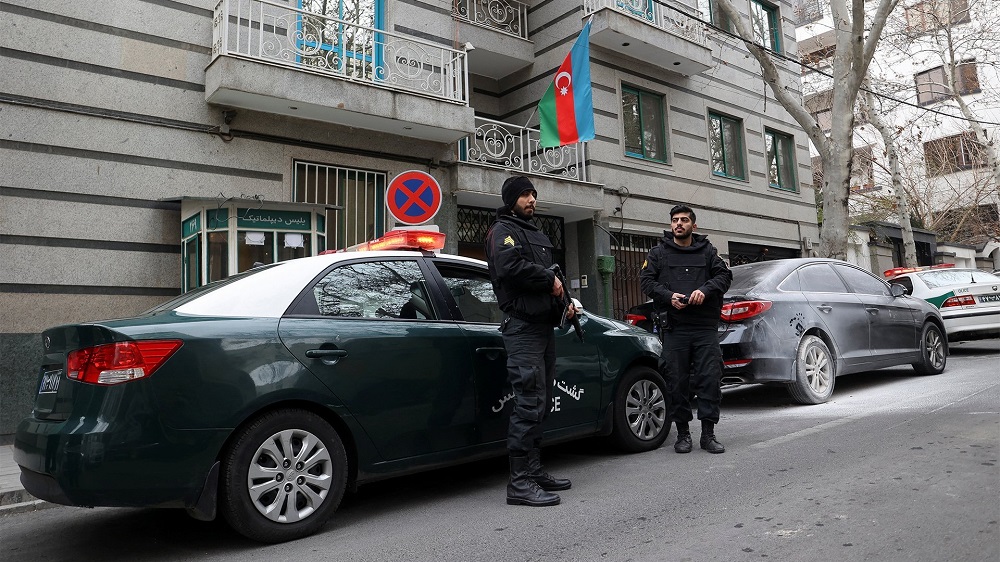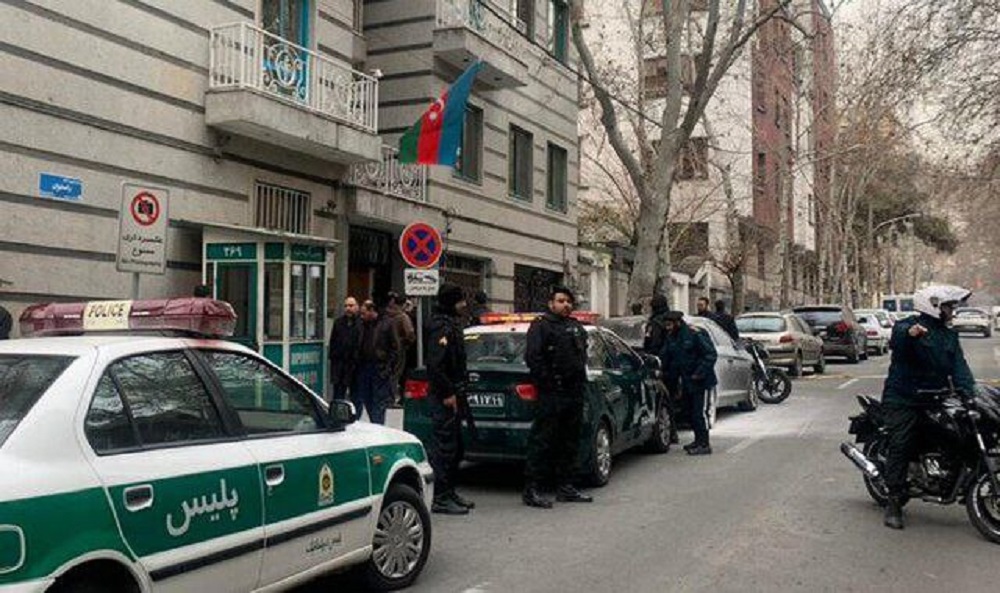Hunt for "Iranian spies" continues in Azerbaijan
Iranian spies in Azerbaijan
On May 16, police in Azerbaijan announced the arrest of another “pro-Iranian” group consisting of eight people, accused of trying to create a Sharia state “Karima” in Azerbaijan on order of the Iranian special services. The number of Azerbaijani citizens arrested on similar charges is in the dozens.
- An interview with the Secretary of the Security Council of Armenia on relations with Russia
- Unemployment rate in Georgia decreased in 2022
- Assessment of Pashinyan-Aliyev-Michel meeting by analysts in Baku and Yerevan
What happened?
The information was jointly distributed by the press services of the Ministry of the Interior, the State Security Service, and the Prosecutor General’s Office:
“Operational measures were taken to neutralize the group of Azerbaijani citizens recruited by Iranian special services in order to destabilize Azerbaijan.
It was established that Rufulla Akhundzadeh and his son Almursal Akhundzadeh, cooperating with the Iranian special services, carried out special activities in the country to organize resistance groups in order to create the Karima state by forcibly changing the constitutional system of the Republic of Azerbaijan by committing armed riots, organizing assassination attempts public figures and officials. As part of the plan, Rufulla Akhundzadeh created confidential groups on WhatsApp, Telegram and other instant messaging systems.”
According to official information, these men provided the members of the group with a list of officials and public figures to organize attempts on their lives.
“To this end, he gave tasks to members of the group to acquire firearms and prepare Molotov cocktails. During the operation, seven members of the Revenge 313 group were arrested — Elgun Agayev, Ruslan Aliyev, Yusif Mirzoyev, Elvin Jafarov, Savalan Huseynli, Bilal Sujeddin, Magerramali Musayev,” the information says.
“Revelations” that began at the end of last year
The hunt for “Iranian spies” in Azerbaijan began at the end of last year. The first “exposure of a spy network” took place in November 2022. Five of those arrested were charged with “high treason” for collaborating with Iran’s security services.
According to the official accusation, Zahir Askerov, the captain of the vessel of the Caspian Sea Oil Fleet, during his religious education in the city of Qom (Iran) was recruited by representatives of the special services of this country in exchange for payment. On their behalf he collected information about companies and offices of foreign states operating in the country, about the place and time of the exercises of the Naval Forces in the Caspian Sea, cargo transported to oil platforms and transmitted the collected information via mobile phone, and directly during meetings with representatives of the special services in Iran.
According to information released by law enforcement agencies, at the same time as Askerov, four other people accused of espionage were collecting various kinds of information and transmitting it to Iran.
According to media reports, two operations were carried out in March this year to “expose the Iranian spy network in Azerbaijan,” and another in April.
All these arrests take place during strained relations between Iran and Azerbaijan. Sparked by Iranian-owned trucks crossing Armenian territory and illegally heading into the Armenian-populated part of Karabakh, tension peaked after the terrorist attack on the Azerbaijani embassy in Tehran earlier this year and have not abated for months.
Law enforcement officials have even said that four suspects arrested in connection with an armed attack on Azerbaijani MP Fazil Mustafa in March were controlled by Iran.
“The authorities are neutralizing possible risk groups”
According to journalist Kenan Rovshanoglu, believers under the influence of Iranian religious centers are being arrested. “Or rather, the authorities are trying to neutralize possible risk groups.”
“Law enforcement agencies of Azerbaijan from time to time carry out such “preventive” measures in order to neutralize the religious influence of foreign countries and the risks that this may cause. As a result, of course, a large number of innocent people fall under the distribution, are imprisoned, suffer and, ultimately, are indignant, considering themselves offended. Of course, it is no secret that there are people in Azerbaijan who are under the influence of Iran or, if I may say so, the religious center in Iran. But I don’t think there are so many such people,” Kenan Rovshanoglu told Turan news.
He noted that religious people have ties with well-known religious centers, and they cannot be broken by any administrative measure.
“In the case of Iran, this is even more problematic, since Iran is officially an Islamic state, and conducts religious propaganda as part of state policy. This is even more sensitive for us, as a country, the majority of whose population is Shiites, and the neighboring country is Iran. Moreover, in a period of deterioration in relations between the authorities of the two countries, this cooling manifests itself as pressure on believers.”




















